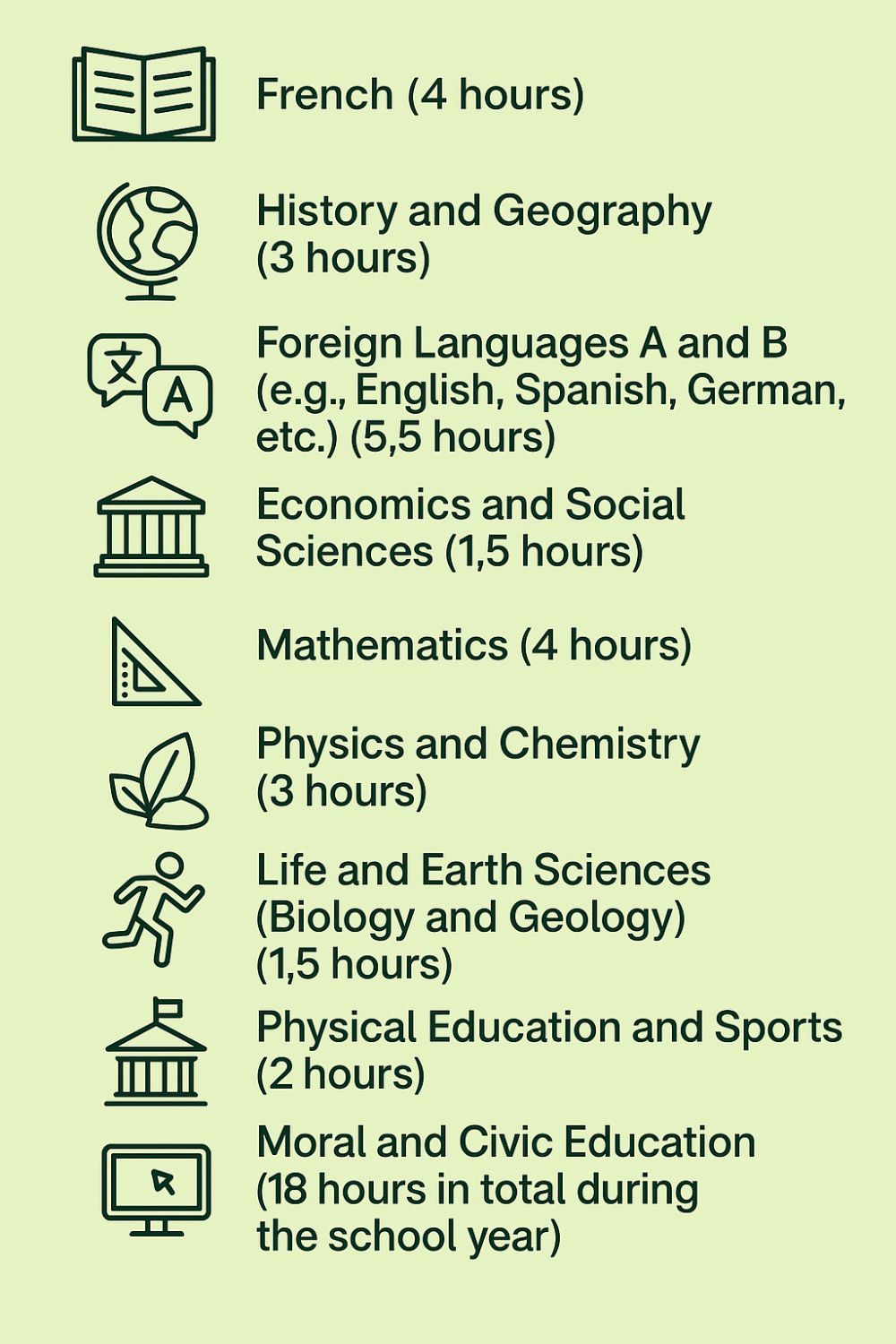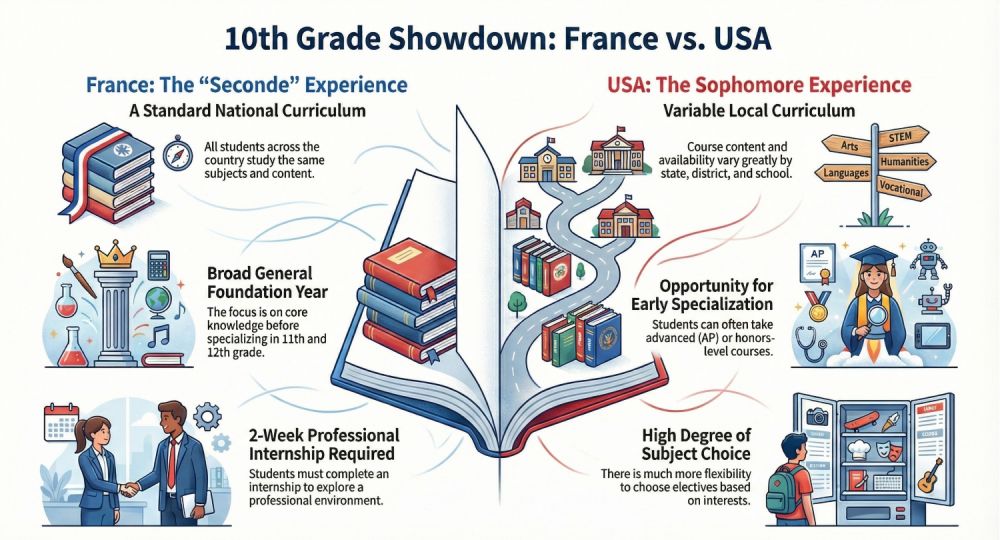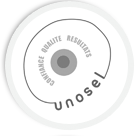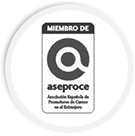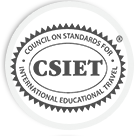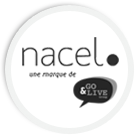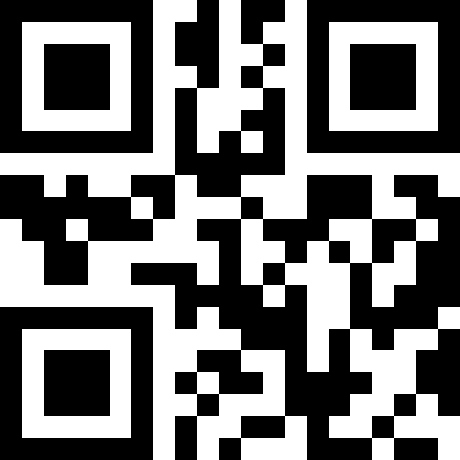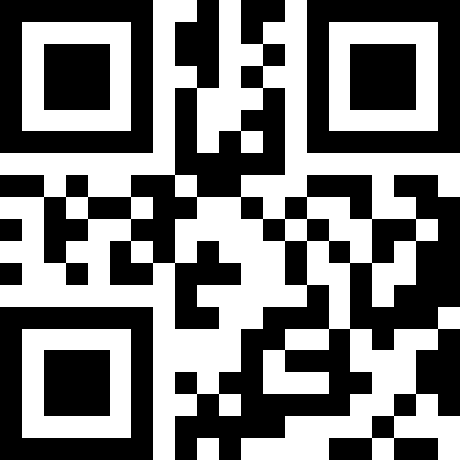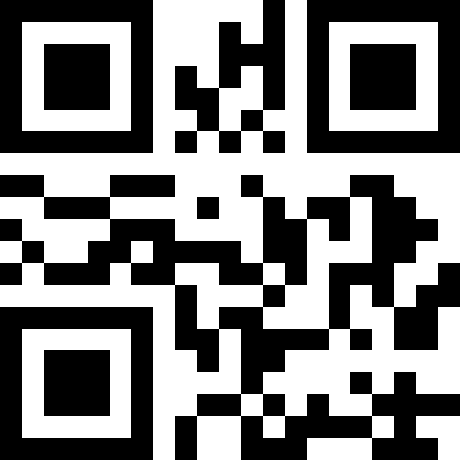10th Grade in France: what to expect in Seconde
How does a 10th grade in France looks like? Learn more about Seconde.
Thinking about doing your sophomore year abroad in France? Then you’ve probably wondered how 10th grade over there (Seconde) lines up with the U.S. school system. We get this question a lot at Nacel — and it totally makes sense, especially if you're trying to figure out credits or plan your classes ahead of time.
Knowing what Seconde is all about helps you get ready for the subjects you’ll take, the way classes are taught, and how school life works in general. Plus, French schools give official transcripts, so if you're hoping to transfer credits back home, understanding the curriculum is a big help.
In this guide, we’ll walk you through what Seconde looks like in France — the required classes, elective choices, and how it sets you up for the next two years of high school. You’ll also see how it compares to what you’re used to in 10th grade in the U.S.
Whether you're going for a full year or just a semester, knowing what to expect can make your exchange smoother and way more fun.
Explore the 10th grade curriculum in France
In France, 10th grade — called Seconde — is the first year of high school (9th grade is still considered middle school over there!). It’s all about helping students build on what they’ve learned so far and get ready for the rest of high school.
Seconde gives you a chance to explore different subjects, figure out what you’re into, and start thinking about your path for the next two years (Première and Terminale). Whether you go for a general or a tech-focused track, the goal is to set you up for University — and whatever comes next in your future career.
In "Seconde" (10th grade / Sophomore), French students follow a general curriculum before they specialize in Grade 11 and 12. It includes:
- 26 1/2 hours/week of common courses for all students
- 3 optional electives (Latin, Ancient Greek, or an additional foreign language)
Note that French students also have to do a 2-week internship in a company or administration to explore the professional environment.
Official source: French Ministry of Education
10th-GRADE French Core Curriculum (mandatory): 26 1/2 hours/week
Every student attends these common classes:
- French (4 hours)
- History and Geography (3 hours)
- Foreign Languages A and B (e.g., English, Spanish, German, etc.) (5,5 hours)
- Economics and Social Sciences (1,5 hours)
- Mathematics (4 hours)
- Physics and Chemistry(3 hours)
- Life and Earth Sciences (Biology and Geology) (1,5 hours)
- Physical Education and Sports (2 hours)
- Moral and Civic Education (18 hours in total during the school year)
- Digital Sciences and Technology (1,5 hours)
Optional courses may include:
- Science and technology subjects (e.g., Engineering Sciences, Science and Lab Work)
- Literary subjects (e.g., Latin, Ancient Greek, a third modern language)
- Artistic subjects (e.g., Visual Arts, Music, Circus Arts)
French/US Comparison: is 10th grade equivalent to a Sophomore year?
Yes, if you attend a 10th grade in France, so a Seconde, the grade is indeed equivalent to a Sophomore year in the USA. That being said, the school systems and curriculum are different:
- In France, the 10th grade remains general and prepares you for specialization in Grade 11 and 12. You can't choose any subject like you would in the USA; you must attend all common classes. Electives are limited.
- In France the "focus" subjects, called Spécialités, are taken in Grade 11 and 12, while in the US, you may already attend AP and Honors subjects in 10th grade.
- In France, all 10th-grade students all over the country attend the same classes and same content in each class. The curriculum is national.
- A 10th-grade Math class in France may not cover the same content like a 10th-grade Math class in the US. Same for Physics or History. It is always difficult to compare subjects even if they have the same name: each country has its curriculum per subject.
In 10th grade (Seconde) in France, the classes are designed to give you a solid base in literature, history, science, and more — all to help you understand the world we live in, like how societies change, how politics work, and why history matters.
Science classes focus on how to think like a scientist — using logic, experimenting, and understanding how science affects real life. The goal is to sharpen your critical thinking and get you thinking about your role as a future citizen.
Language classes aren't just about grammar; they also dive into the culture and countries where the language is spoken. Social sciences and economics help you understand how money, businesses, and societies work.
You’ll also have a class on digital science and tech, which introduces you to how the digital world works and how it’s changing the way we live. If you're into tech, you can go deeper in 11th grade with computer science.
Some subjects mix things up — like combining philosophy, literature, history, and politics to look at today’s big issues from different angles. There's also a big focus on speaking and writing skills and learning how to argue your ideas, especially for the final oral exam in senior year.
Overall, the French system gives you a mix of hands-on projects, experiments, group discussions, and real learning time — so you’re not just memorizing stuff, you're actually understanding it.



